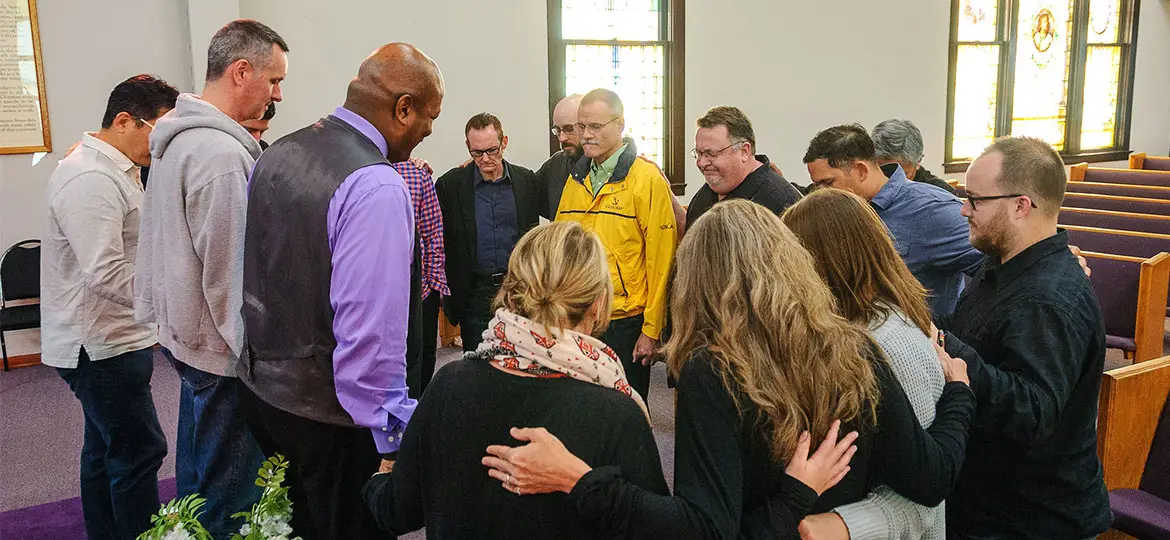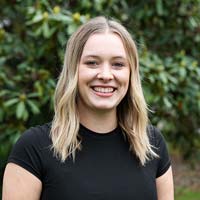
MDiv Equivalence
Pursuing a DMin without an MDiv
While the most straightforward way to meet Doctor of Ministry (DMin) prerequisites is by applying with a completed Master of Divinity (MDiv) degree, we also consider applicants without an MDiv, in accordance with our accrediting body's guidelines.
Portland Seminary does not require MDiv equivalency; however, there are admissions requirements all applicants for the Doctor of Ministry degree must meet. Applicants must demonstrate they meet the admissions criteria set by our accrediting body, The Association of Theological Schools (ATS).
ATS Standard 5.5 states:
The Doctor of Ministry degree is an advanced professional doctorate that builds upon an accredited master’s degree in a ministry-related area and upon significant ministry experience. Students without an accredited Master of Divinity degree may be admitted, provided the school has publicly stated admissions criteria that address the following six areas and provided the school documents how each applicant meets each of these criteria:
- The ability to thoughtfully interpret scripture and the theological tradition of one’s ministry context
- The capacity to understand and adapt one’s ministry to the cultural context
- A basic self-understanding of one’s ministerial identity and vocational calling
- A readiness to engage in ongoing personal and spiritual formation for one’s ministry
- An accredited master’s degree (or its educational equivalent) in an area related to one’s ministry setting or vocational calling.
- Significant ministerial experience that enables the applicant to engage as a ministry peer with other students in this advanced professional doctorate.
-
Apply
To get started, complete Portland Seminary’s online application. You’ll be asked to provide academic history, ministry experience, references, and written responses demonstrating your readiness for advanced professional study. Make sure to include official transcripts from every college or seminary you’ve attended.
If you’re unsure about your eligibility, you can contact your admissions counselor prior to applying for guidance on how to document your qualifications.
-
Application Review
Upon completion of an application, the program faculty administrators will conduct an application review. Applicants that meet admissions criteria may be invited to interview. Please note that submission of an application does not guarantee an interview.
Those with an MDiv degree are reasonably assumed to meet ATS criteria (A) through (E) based on their degree and the rest of the application. Program faculty administrators will evaluate their suitability for the program based on their application, experience, and interview. An eligibility evaluation is not needed.
For those with a master’s degree in a ministry-related area other than an MDiv, an evaluation is conducted to ensure the applicant meets all ATS criteria (A) through (E). Applicants who meet this basic eligibility requirement and all other program prerequisites may be invited to interview.
Applicants with a master's degree that is not ministry-related but relevant to the applicant’s ministry setting or vocation may be considered. However, they must still meet the six ATS criteria listed above. Program faculty administrators will evaluate the application and identify any requirements to create a pathway for meeting eligibility.
-
Complete Foundational Courses (if necessary)
Upon reviewing your application, our program faculty administrators will evaluate your materials to determine if you require foundational courses. If some of the criteria have not been met, additional courses will be required. If admitted to the program, the student would need to complete all courses at a time and pace chosen by the faculty administrators. If foundational courses are under 12 credit hours and all other admissions requirements are met, applicants will proceed in the admissions process and be invited to an interview.
Don't have a ministry-related master's degree?
If you don’t have a ministry-related master's degree, but want to pursue a seminary doctorate, you may consider our Doctor of Leadership in Global Perspectives program. This program is open to applicants with a master’s degree in an area relevant to their professional context, provided they meet all other admission requirements.

Laura Holland
DMin program graduate, pastor in Fayetteville, Arkansas
I had mixed feelings finding out I had six hours of leveling course work before starting my DMin program. I was grateful for the opportunity to fill in educational and experiential gaps, but I was concerned adding two courses to my schedule would be challenging. I was pleased to discover how much I enjoyed and learned. My instructor was so supportive and helped tailor the courses to what I needed to be successful. I was already sure the DMin program was what God was leading me to pursue, but the leveling course work gave me the additional confidence and assurance I wasn't even aware I needed.
Questions?

Haley Gibson
Admissions Counselor, Portland Seminary